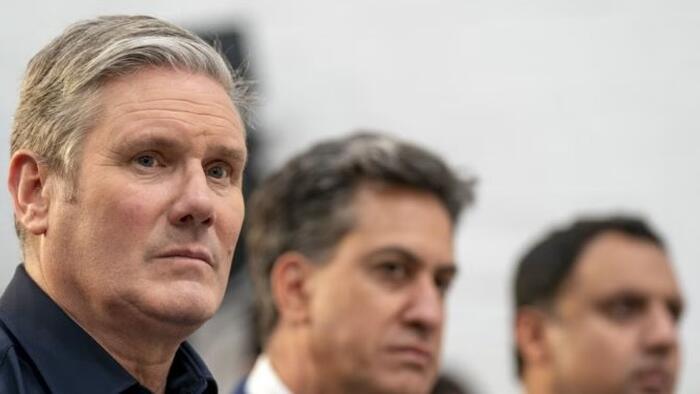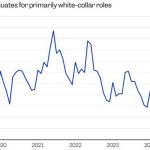Authored by Chris Morrison via DailySceptic.org,
Earlier this week the Labour backbencher and Chairman of the U.K. Parliament’s Energy Committee Bill Esterson noted that people will have to adjust their habits to meet Net Zero emission goals for 2030. Such honesty, emerging as it does from the Parliament of Net Zero nodding donkeys, is to be applauded. As far as it goes. Try a 30% reduction in energy demand. After 2030, consider that all beef, lamb and dairy will be banned and “replaced by new diets”. Then there is a massive 45% cut in most common building materials such as cement, along with a similar reduction in road freight traffic. The attack on farming will be remorseless with fertiliser restriction halving “direct emission” from the soil. To sum up: widespread rationing and blackouts along with food, holiday and travel restrictions, all within about 60 months.
Look at what they fund and write and whom they consult, not what they say, is the best advice to counter all the whoppers that are being told about Net Zero. Sir Keir Starmer’s statement at the recent COP29 that he didn’t want to tell people how to live their lives can only be explained by noting it came from a British Prime Minister who has difficulty telling a woman from a man. Thankfully we have the Government-funded U.K. FIRES project to give us an honest heads-up on the near-term implications of Net Zero. All of the substantial reductions in energy, food and industrial materials mentioned above arise from its “pragmatic approach”. Its evidence-based conclusions rely on technologies that are available today. It excludes processes such as carbon capture and hydrogen that have yet to be proven at meaningful scale.
Its conclusions warm the hearts of the most committed green ideologues. Its reports also happen to be the most honest representation of the horrors that await if the Net Zero fantasy ever becomes a reality.
By 2028 a total of seven million heat pumps will need to be installed and massive retrofits undertaken in domestic homes. Meanwhile, all rented and non-domestic properties will need to be EPC A rated by 2030. The desire to “manage land use for Net Zero emissions” means a massive cut in chemical fertilisers, so expect food supply to fall off a cliff.
U.K. FIRES notes, correctly, that there is “insufficient time for the planning, development and construction of new large-scale infrastructure to contribute to the 2030 target”. Again correctly, it is observed that increased use of wind and solar power creates a problem with intermittency. “Eventually, this must be addressed by either demand-shifting or storage,” it states. Storage at scale is more or less impossible with current technology, and another word for “demand-shifting” is rationing. To enforce these consumption restraints across the broad range of modern industrial lifestyles, a “whole society” approach must be mobilised.
U.K. FIRES received a £5 million grant from the British Government and its warnings – or should that be wishes – about 2030 are contained in a report called ‘Minus 45’ prepared ahead of the Glasgow COP26 in 2021. It is based on a U.K. Government promise to reduce carbon emissions by 45% from 2018 to 2030. Its recommendations are relevant today, not least because Starmer tried to curry favour at the recent COP29 in Baku by promising to reduce emissions further.
That would be the COP29 conference that made great progress in destroying the system of bribes paid out as so-called climate aid to developing countries to stop them developing with the aid of hydrocarbons. Nobody knows who will pay for a promised £1.3 trillion a year by 2035, not least because President Trump will sweep away any American commitment with a stroke of the executive pen come January 20th. Helpfully, if anyone cares enough to move from lip service to actual action, creative climate accounting is still possible. A requirement to ban the construction of coal-fired power stations was removed from an early draft and it failed to make it into the final communiqué. This will no doubt please the Japanese who backed the building of the Matarbari ultra-supercritical coal-fired power station in Bangladesh on the grounds that it used Japanese technology to generate more energy with less coal. At COP29, diplomacy was “truly the art of agreeing to nothing”, notes David Wojick from CFACT.
The shamble at COP demonstrates that the world is moving away from the idea that hydrocarbons can be removed from a modern economy. But an accident of recent electoral politics has left Britain with a fanatical Government of Net Zero zealots. The anti-working class Labour party was returned to power with a popular vote count less than its losing Marxist leader obtained in 2019. The U.K. FIRES work demonstrates what lies in store. A resurgent America bounding ahead on cheap energy and unleashed entrepreneurial spirits will contrast with its European allies shutting down industrial manufacturing in pursuit of an increasing unpopular state-mandated doomsday cult.
Loading…











